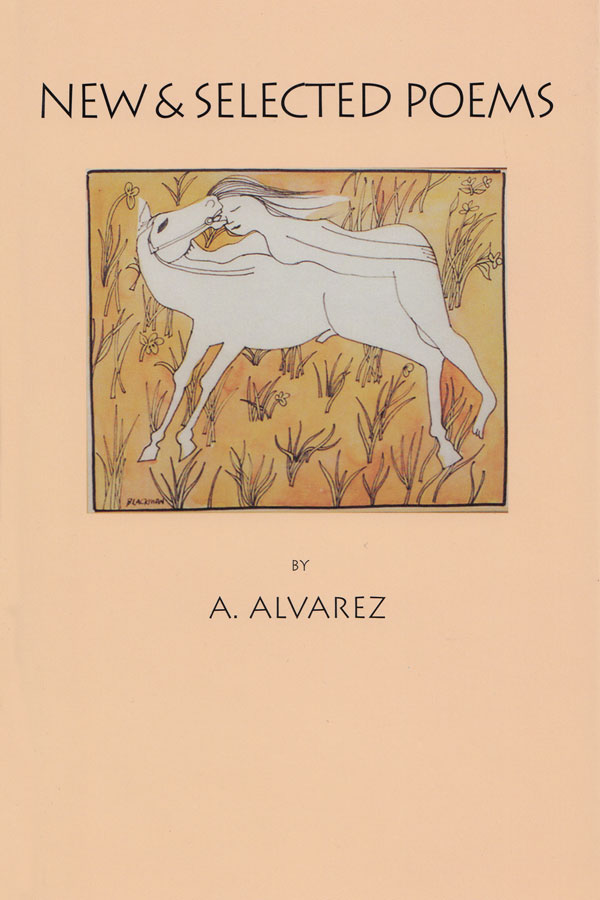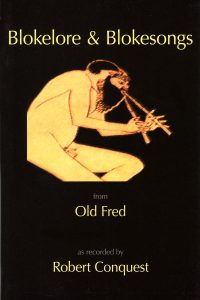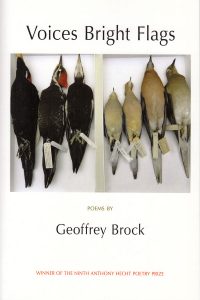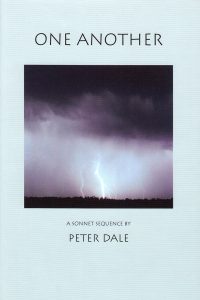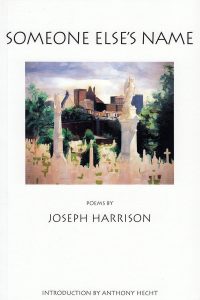New & Selected Poems
£8.95
It is almost twenty-five years since Al Alvarez last published a book of poetry. That volume, Autumn to Autumn and Selected Poems 1953-1976, contained all that Alvarez wished to preserve of his poetry at that time, and it was greeted enthusiastically by the reviewers. Peter Porter, for example, spoke of his “decorum”, '”finely phrased lyricism” and “stoical weight”, and concluded his article by saying that Alvarez “possessed talent of a high order”.
Alvarez has not been a prolific poet, but as another admiring critic has written, though “slight indeed in volume”, his verse “is rich in its economy”. If we need an explanation for why the New & Selected Poems is not twice the length of its predecessor, that same critic's explanation is assuredly the right one: “Perhaps the standard he sets [for himself] is too high.”
To the poems that appeared in Autumn to Autumn, this latest volume adds nine new poems. If the focus of his earlier work was on “love, separation and death”, as John Fearns has claimed, the new poems are almost all of them preoccupied with love alone – love of a man for a woman, and love of a human being for the natural world. Alvarez's poetry has been unavailable for far too long, and Waywiser is proud to be making it available again.
New & Selected Poems
Sunday Times, July 7th 2002
“Alvarez has published venturesome works of fiction and literary criticism, revealing books about suicide, divorce and dreams, and essays on his pleasure in the hazards of rock-climbing and poker. But he has returned, in the end, to poetry, enjoying the risks of what can be, as he once declared about Sylvia Plath, ‘a murderous art.’ With many of the poems here he brings off the gamble.
They are arranged, roughly speaking, in reverse chronological order, and it is best to start reading at the end of the book and work backwards. Alvarez has retained little of his 1950s work, when the tension between realising his talents as a critic and needing to write himself produced ‘The Catharsis’: ‘it is the tenderness you feel you know / You may have had the tenderness you miss / Still in the mask you wear your tongue can go / Raptly to themes the audience won’t guess.’ There, the echoes of William Empson’s voice were loud indeed; but the knotted curiously gripping passion of the older poet was missing. That leading critics such as I.A. Richards and R.P. Blackmur (and Empson in particular) had produced remarkable poetry certainly encouraged early attempts like that. But Alvarez’s verse only really begins to work when he abandons the contrived metaphysical wit and the university teaching: directly addressing personal themes of love, unhappiness, birth, death and dreaming in his writing and committing himself to a freelance existence.
‘A Cemetery in New Mexico’ (1958) thus looks like a turning point, a moving commemoration of his dead grandfather and a celebration of his infant son, which suggests what poetry might be something he now feels compelled to write. The poems that follow, apparently connected with a too-hasty marriage bringing conflict, humiliating hurt, and ultimately a suicide attempt, are the closest he comes to the confessional extremities of the American poets he admired Plath, John Berryman Robert Lowell.
‘Waking’ dates from the same year (1959) as Lowell’s Life Studies, a book containing a famous poem about the woes of the marriage bed, ‘Man and Wife’. Alvarez avoids any attempt at the same raw, vulnerable eloquence. In ‘The Picture Gallery’, distressing images in the paintings nudge him towards halting lines about his own distress. Both of these poems are beautifully balanced, and ring true – and are sparing with personal detail. At the time he is the severe poetry critic of the Observer, and like the late Ian Hamilton, his successor in that post, he seems to be sensing the danger in exposing his own work to the public gaze. But also like Hamilton, he gives the reticence incontestable emotional weight.
Then things lighten a little. A cryptic sequence of seven poems dating from 1974-5 seems to be about an old affection rediscovered but not to be renewed. The mood is serious, but increasingly relaxed; in places it is jauntily resigned, as in ‘Autumnal’: ‘The trees / Unravel their summer stuff whispering, “Who / Gives a damn, gives a damn, gives a damn, gives a damn?”‘
Finally, after a long gap, arrive the new poems about married happiness at the front of this book. ‘Winter Morning’ has a last-line cadence straight out of Empson, the sheen on his ‘Blueberries’ is patently left by Ted Hughes, and ‘High Dive’ replays a favourite image of risk deriving from childhood. So the old echoes resound. But ‘Mermaid’ and ‘Silk’ are delightful poems about late lovemaking, and ‘Night Talk’ is about good dreaming, not nightmares. The adrenaline still rising after a life of intense physical and emotional action is producing a poetry of odd innocence. A joyful art?” – Alan Brownjohn
Reviews of New & Selected Poems
Poetry London, Spring 2003
“[Alvarez’s] lean and unadorned language often accrues power from a jazzy kind of improvisatory technique – brief staccato phrases rubbing and jostling against each other. This is not poetry designed for recollecting anything in tranquillity and is at its impressive best in dealing with conflicting emotions, fear and anxiety, the dark reality of death. Several of the poems engage in a kind of modern gothic with ghosts, dream imagery and a heightened emotional temperature at every turn. All these elements come together in the third section of this book which tracks the demise of a relationship with an almost unbearable ‘nakedness’, though with a curious sense of artistry which always keeps the reader this side of the confessional box. Poems like ‘Night Music’, ‘Waking’ and ‘The hunt’ are ghastly and grisly affairs, but poetry of real power … The new poems … lack the bustle and energy of the earlier … but the best make up for it with a Keatsian appreciation of the sensual possibilities of the world and of human love … Alvarez’s work is, in the long view, about survival, and perhaps happiness is not a productive muse – but his best work is very good, and I’d second Waywiser’s proud boast about the benefits of making it available again.” – Martin Crucefix
World Literature Today,July-September 2003
“… Alvarez is a consummate craftsman, powered by a lyric impulse in which sparseness of sentence structure is matched with a direct, simple, often monosyllabic vocabulary, as in “Now tooth and pelt / Rasp with life as flint upon a tinder.” Like Larkin, part of his skill lies in avoiding predictable iambics by displacing stresses and by unexpected run-on lines, such as “The same head on my chest / Stirs,” or by an often staccato inversion of word order: “Pale as the dead. As the dead / Fragile. Vague as the city / Now the fog chokes down again.” True, this can become a mannerism. Occasionally, a line comes across as too self-consciously lapidary, too gracefully plangent in an antique mode, so that the obstrusive elegance of “For the beautiful summer is lost, and lost the birds” undercuts our sense of emotional involvement. Against this, however, we must place the moving simplicity of the opening lines of “A Cemetery in New Mexico,” written in memory of the poet’s grandfather: “Softly the dead stir, call, through the afternoon. / The soil lies too light upon them and the wind / Blows through the earth as though the earth were pines.” Simplicity, one of any art’s most elusive qualities, is never easy, but since his early poems … Alvarez seems to have whittled himself: the nine “New Poems” shed some of his pervasive melancholy and relish the tangible world with a succulent exactness of imagery. Thus “Blueberries” concludes: “They taste like flowers would taste / In an edible universe: / A jolt of colour, / Cool skin on the tongue, / Explosions of pleasure.” Whereas many male poets excel in evoking the chase or the conquest, few succeed as well as Alvarez in “High Dive" in conveying certain registers of love, its lightness and sheer affection. The evidence of these later poems, which infuse his characteristic wit and imagery with greater colloquial ease, suggests there may be even better things to come.” – Christopher Levenson
Anne Dancing
You sashay in, twenty years-old again,
Sweatshirt and jeans, eyes closed, a cat-like smile,
Self-satisfied, self-absorbed, hips swaying,
Weaving your intricate steps across
The intricate carpet. The merest glance
At me does it. You’re a North American
College girl out on a date, a ’50s-style
Dazzler – great legs, cute ass, sweet smile.
That’s Satchmo playing
Your youth back loud and clear. You toss
Your greying, lovely head. You say, “Come on, let’s dance.”
The Waywiser Press
A Cemetery in New Mexico
To Alfred Alvarez, died 1957
Softly the dead stir, call, through the afternoon.
The soil lies too light upon them and the wind
Blows through the earth as though the earth were pines.
My own blood in a heavy northern death
Sleeps with the rain and clay and dark, thick shrubs,
Where the spirit fights for movement as for breath.
But among these pines the crosses grow like ferns,
Frail sprouting wood and mottled, slender stones,
And the wind moves, through shadows moves the sun.
Delicate the light, the air, a breathing
Joins mourners to the dead in one light sleep:
I watch as I would watch a blind man sleeping,
And remember the day the creaking ropes let slip
My grandfather’s heavy body into his grave,
And the rain came down as we shovelled the earth on the lid.
The clods fell final and flat as a blow in the wind
While the mourners patiently hunched against the rain.
There were Hebrew prayers I didn’t understand.
In Willesden Cemetery, honoured, wealthy, prone,
Unyielding and remote, he bides his time.
And carved above his head is my own name.
Over and over again the thing begins:
My son at night now frets us with his cries
When dark above his crib the same face leans.
And even here in this clear afternoon
The dead are moving like wind among the pines;
They touch my mouth, they curl along my spine.
They are waiting for me. Why won’t they call my name?
The Waywiser Press
Excerpts
Anne Dancing
You sashay in, twenty years-old again,
Sweatshirt and jeans, eyes closed, a cat-like smile,
Self-satisfied, self-absorbed, hips swaying,
Weaving your intricate steps across
The intricate carpet. The merest glance
At me does it. You're a North American
College girl out on a date, a '50s-style
Dazzler - great legs, cute ass, sweet smile.
That's Satchmo playing
Your youth back loud and clear. You toss
Your greying, lovely head. You say, "Come on, let's dance."
The Waywiser Press
A Cemetery in New Mexico
To Alfred Alvarez, died 1957
Softly the dead stir, call, through the afternoon.
The soil lies too light upon them and the wind
Blows through the earth as though the earth were pines.
My own blood in a heavy northern death
Sleeps with the rain and clay and dark, thick shrubs,
Where the spirit fights for movement as for breath.
But among these pines the crosses grow like ferns,
Frail sprouting wood and mottled, slender stones,
And the wind moves, through shadows moves the sun.
Delicate the light, the air, a breathing
Joins mourners to the dead in one light sleep:
I watch as I would watch a blind man sleeping,
And remember the day the creaking ropes let slip
My grandfather's heavy body into his grave,
And the rain came down as we shovelled the earth on the lid.
The clods fell final and flat as a blow in the wind
While the mourners patiently hunched against the rain.
There were Hebrew prayers I didn't understand.
In Willesden Cemetery, honoured, wealthy, prone,
Unyielding and remote, he bides his time.
And carved above his head is my own name.
Over and over again the thing begins:
My son at night now frets us with his cries
When dark above his crib the same face leans.
And even here in this clear afternoon
The dead are moving like wind among the pines;
They touch my mouth, they curl along my spine.
They are waiting for me. Why won't they call my name?
The Waywiser Press

